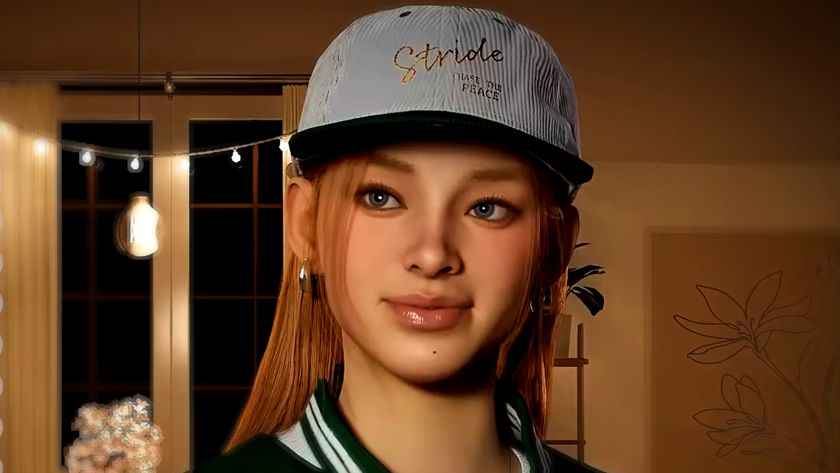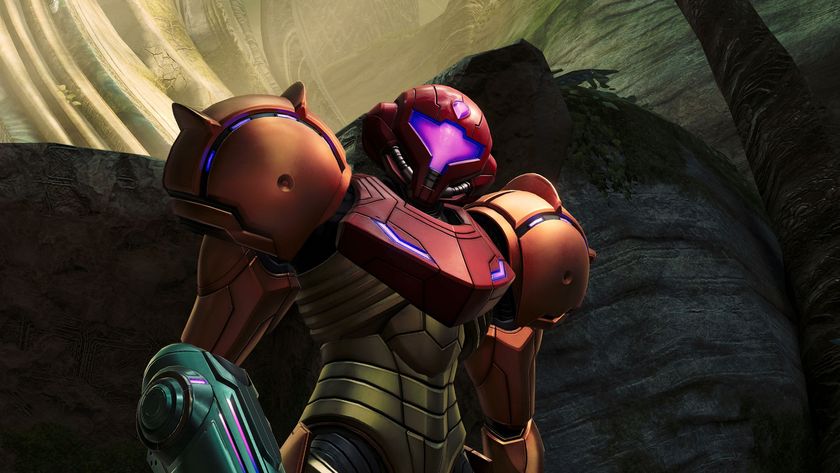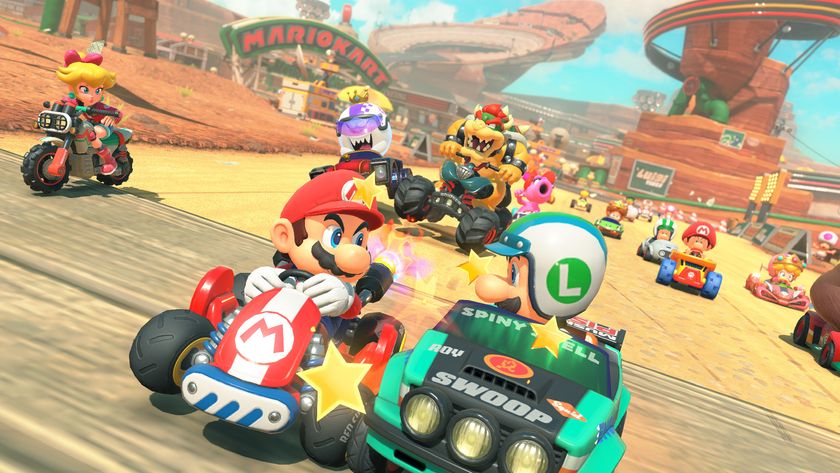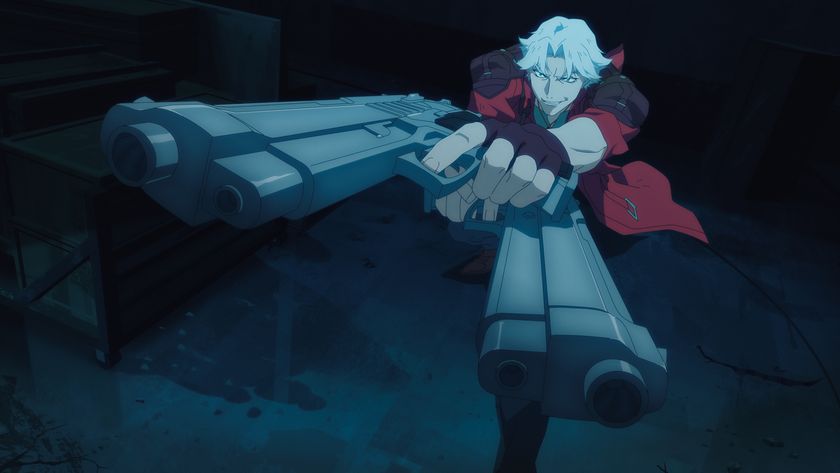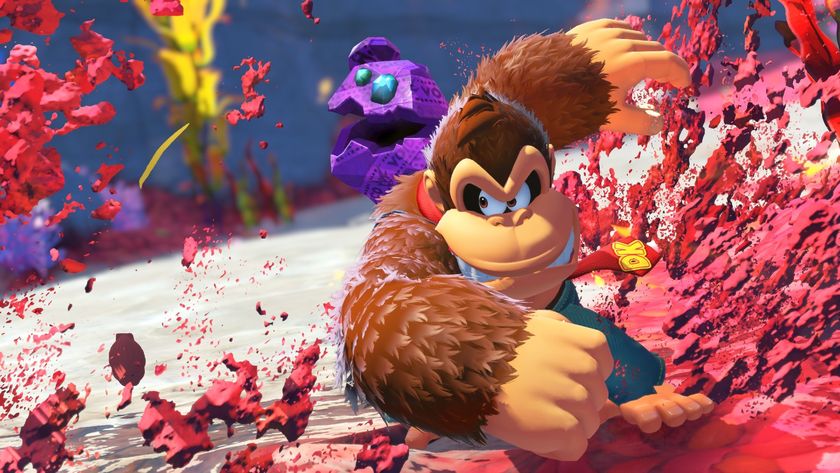The Sims 2: Inside the mind of Will Wright
PC Gamer asks the man behind The Sims how does he torture his little people?
Is that going to be a design trick you'll use in the future?
It's not so much a design trick, as a design mode. It's really one of the hardest problems we have to solve... you were talking about "how do we make the behaviour more complex," and a lot of people are going to be focused on solving that problem, but I think the real problem is, "how do we convey the intent, how do we convey the existing complexity of the behaviour?" So we're stuck fighting the wrong battles, and we wonder why our solutions aren't working.
One of the most touching things about The Sims 2 is that if two Sims are in love, and sleeping together, in the night they'll wake up and cuddle up to each other. It's a real "awww" moment.
Yeah. There's a flavour to the Sims that we've tried to maintain. In some sense it's a parody of real life, but at the same time there's something almost charming or sincere about it. It does take the subject seriously at some level. By seriously I mean it respects real life, it respects the day-to-day dramas and problems.
But on the other side, you've got that absolute streak of the bizarre...
But that helps... It's meant to be a playful environment, somewhere you go to experiment. If a Sim dies, hopefully you will feel grief for it, but we don't want it to come off in the wrong way. I call it flavour, but it's more the raw emotional level, the way in which we want the players to be relating to this experience.
They more thoroughly exhibit the right behaviour for the situation you're trying to map on to them. A lot of the time in The Sims we left a lot of things in the Sims completely ambiguous. If you put two people in the house, maybe a man or a woman, the Sims didn't really know if they were married, brother and sister or room-mate. A lot of the time it would break the model that was in the player's head, the player thought they were siblings, but they would act like they were married. So that's what we tried to change in The Sims 2, they now have a level of awareness, they now know what appropriate social behaviour is, they now know what relationships are, so it more closely matches the model that's in the player's head.
Wants and needs, more accurate lifespans... The Sims was so open ended, yet now you're putting restrictions what you can do in your lifetime...Right, yes. Before it was like The Simpsons, in that no-one ever aged, they stayed seventeen for ever.
So why try and restrict the player?
It's because we're trying to turn it into a bit more of a deeper strategy game. We tried to make the game so that if you only played The Sims and you were a casual gamer, you could just ignore all that stuff, and you could just play it in the same way. If you were a hardcore gamer to begin with, we wanted The Sims 2 to feel like a much more rewarding, and interesting strategy game. In some ways we're trying to keep that giant casual group we've already got, and recapture the gaming market.
Sign up to the 12DOVE Newsletter
Weekly digests, tales from the communities you love, and more
You're right, it is a strategy game, it's a social strategy game...
It's a very elaborate game, there's all these different goal states all the characters have, and they come into conflict with each other through the aspirations and the intricate little mechanisms... at some level, it's meant to be... ahh... fuel for storytelling. These are all elements of drama, elements of wants and needs, the phobias, the aspirations, these are all the exact same things that mainstream drama is built on.
So the Sims have the same motivations that scriptwriters talk about?
Yeah, and we noticed that when players were playing the game, even in a totally open-ended simulation, that's what they were trying to map onto the game. "Oh, he must be really upset with that person, or he's holding a grudge, or he's touching his arm because he was hurt there..."... these are all things that a normal scriptwriter might have taken into account, but the Sims didn't have that kind of awareness. We tried to figure out what those were, and give them that kind of awareness.
So as a designer do you have to think about the psychology of how the player will react?
We are thinking about the emotional state of the player. We want the simulator to roughly recognise that, to have a better understanding of the story the player is telling to the computer. The Sims is all about the player telling the computer a story. The more the computer can recognise, the more it can supply appropriate results and repercussions to that story.
That's an amazing thought, that players are telling their PC a story...
Actually, long term, that's one of the directions I want to go with The Sims. I think we're at the point now where we can give the computer a much better idea of how to parse out the story. Right now, I think that if I watched what you were doing in the game, the interactions you took, the clothes you dressed your Sims in, the characters you create, I think I could get a pretty a rough idea of whether you're doing comedy, horror, or romance. If the computer can have that level of understanding, which is not far from where we are now, then, if it's a horror, the mood can change, the music can get creepy, a thunderstorm appears, lightening strikes, and all of a sudden there's a chainsaw outside the front door. Then there are the other people, who might decide to go a bit goofy, and so the game turns into a comedy, and a laughter track starts. So, it would feel like the computer is your assistant, you're telling this story, and the computer's doing the lighting, and the sound. It's not random anymore, it's all targeted. That's the direction I'd like to see - then it feels like an interactive movie.
